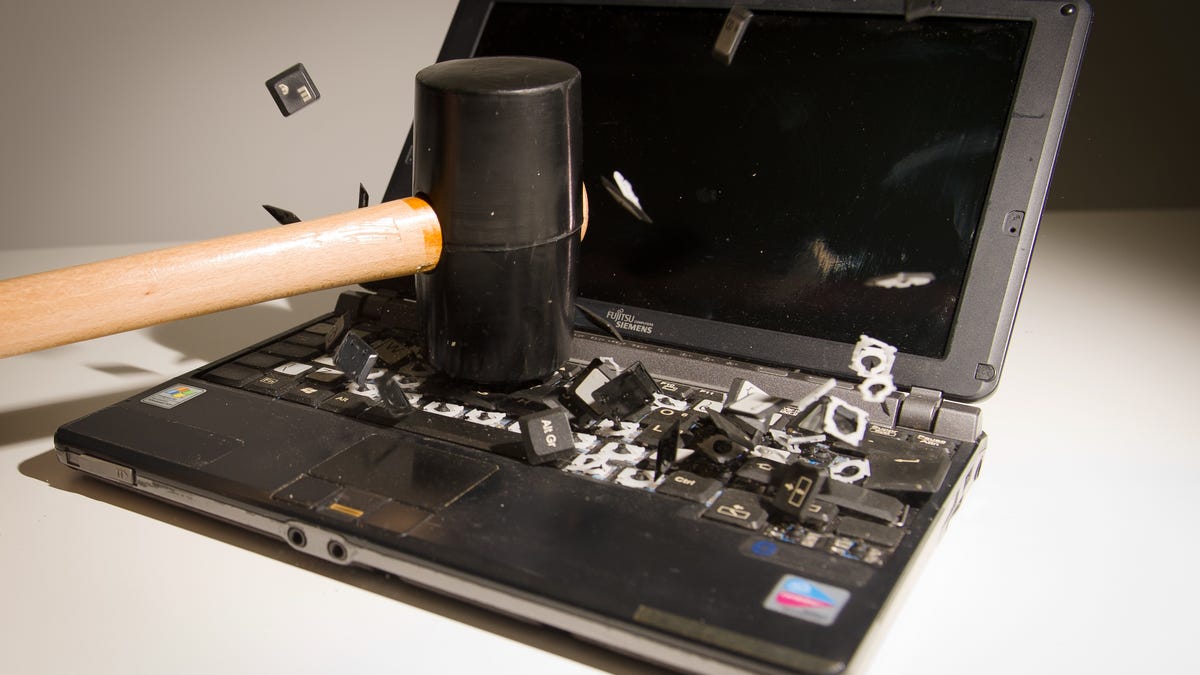Computer destroyed to squelch NSA stories, Guardian says
Newspaper's editor describes how representatives of intelligence agency destroyed a MacBook Pro after the paper declined demands to surrender or destroy documents provided by Edward Snowden.

In a blog post describing "one of the more bizarre moments in the Guardian's long history," editor Alan Rusbridger recounted how British government agents destroyed a computer containing information provided by National Security Agency whistleblower Edward Snowden.
About two months ago, Rusbridger wrote, the British government began pressuring him to return or destroy the documents Snowden had provided that were serving as the basis for a series of articles about controversial U.S. government surveillance activities. A month later, the mood darkened, with a government official reportedly phoning the editor with the message: "You've had your fun. Now we want the stuff back."
Those demands were repeated in a series of meetings with "shadowy Whitehall figures" during which Rusbridger explained that the newspaper would not be able to conduct research or report about the agency's activities if it complied. During one such meeting with representatives of the Government Communications Headquarters (GCHQ), the U.K.'s communications intelligence agency, Rusbridger tried to explain that the global nature of the news business made such destruction irrelevant:
I explained to the man from Whitehall about the nature of international collaborations and the way in which, these days, media organizations could take advantage of the most permissive legal environments. Bluntly, we did not have to do our reporting from London. Already most of the NSA stories were being reported and edited out of New York. And had it occurred to him that [Guardian reporter Glenn] Greenwald lived in Brazil?
The man was unmoved. And so one of the more bizarre moments in the Guardian's long history occurred -- with two GCHQ security experts overseeing the destruction of hard drives in the Guardian's basement just to make sure there was nothing in the mangled bits of metal which could possibly be of any interest to passing Chinese agents.
Despite the primer on modern-day news collection techniques, "Whitehall was satisfied," Rusbridge wrote. One of the agents reportedly joked that, "we can call off the Black Hawk helicopters" as the remains of a MacBook Pro were swept up off the basement floor.
CNET has contacted the GCHQ for comment on the incident and will update this report when we learn more.
The revelation was included in a blog in which Rusbridger took issue with the 9-hour detention of Greenwald's partner on Sunday as he was passing through London's Heathrow Airport on his way back to Brazil.
"If the U.K. and U.S. governments believe that tactics like this are going to deter or intimidate us in any way from continuing to report aggressively on what these documents reveal, they are beyond deluded," Greenwald wrote. "If anything, it will have only the opposite effect: to embolden us even further."
Rusbridge echoed those sentiments.
"We will continue to do patient, painstaking reporting on the Snowden documents; we just won't do it in London," the newspaper editor wrote.
(Via The Washington Post)

